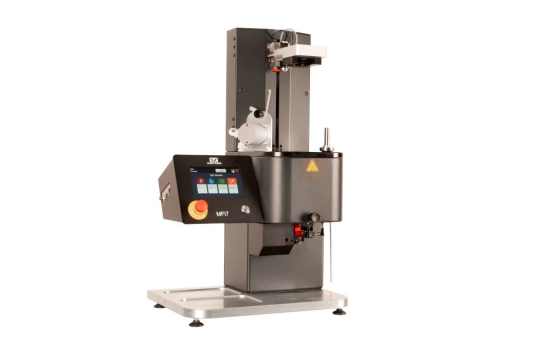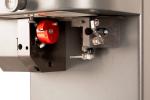ISO 1133: How to Use a Plastic Melt Flow Index Tester to Determine the Melt Flow Rate of Polymers
ISO 1133 covers the test methods used to determine the Melt Flow Index (MFI) of thermoplastic polymers.
According to ISO 1133 and ASTM D1238, the MFI is the weight of polymer melt flowing out from a standard die (2.095 x 8 mm) at a given temperature and with a standard weight applied to the piston.
The ISO 1133 MFI is used to verify if a plastic material's grade is within the required fluidity range. This is commonly used for polyolefins (polyethylene HDPE, LDPE, LLDPE, and polypropylene PP).
Melt flow rate testing
ISO 1133 specifies two methods for testing:
- Procedure A is a manual mass-measurement method, in which timed segments of the extrudate are weighed with a balance after the test to determine the melt mass-flow rate (MFR) of plastics.
- Procedure B is a displacement-measurement method, based on the measure of the piston displacement using an encoder.
This is expressed in g/10 min. The result is the melt volume-flow (MVR) rate.
Expressed in cm3/10 min, it is the average data of the different encoder acquisition points.
The melt density is also measured and used to calculate the related MFR.
We recommend using the MVR measurement when comparing filled with unfilled thermoplastics, as well as when comparing materials of different filler content.
Plastic Melt Flow Index Testers: key recommendations
The Instron MFi Series are ideal for measuring the melt flow properties of a polyproylene in accordance to ISO 1133 Procedure B. The melt flow tester is equipped with an encoder, a motorized weight lifter for automatic weight application after a selected time, and automatic cutting of the extrudate to measure the melt density easily.
Due to the high fluidity of this type of material, we recommend blocking the die exit with a Die Plug accessory, to prevent drool of the molten sample before starting to measure.
Additionally, we recommend using a 40-measurement points acquisition of the encoder to obtain a high accuracy of the results. This allows the customer to get a reliable measure, even with a high sample fluidity, giving a MFR value equal to 102.55 g/10 min.
At the end of the test, we recommend cleaning the instrument thoroughly with our automatic barrel cleaning device to reduce the testing time and to optimize the quality control process.
For chemically-aggressive materials, such as PVC or Fluoropolymers, we developed a special corrosion resistant kit (barrel, die, piston) that can be provided with all our instruments.



